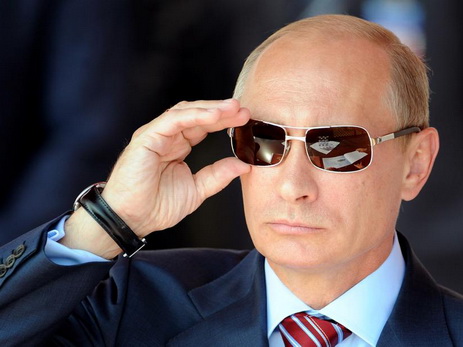i24news TV: Putin provided the match for the fire in Nagorno-Karabakh

Russian president is sending out a warning to Azerbaijan's president who is trying to build ties with West
Last weekend fighting broke out between Azerbaijan and Armenia in the Nagorno-Karabakh region, at an intensity which had not been seen since the ceasefire between the two sides was signed in 1994.
President of Azerbaijan, Ilham Aliyev, completed a successful weekend visit to Washington. In addition to his participation at a summit of world leaders on the prevention of nuclear proliferation, the president also held successful meetings with US administration officials. Aliyev was warmly received in Washington and his policies aimed at deepening relations with the United States were received favorably.
Even before the flags had been folded away at the end of his visit to the US and while Aliyev was making his way to Baku, there was a resurgence of fighting in the conflict in the Nagorno-Karabakh region between Armenia and Azerbaijan that led to dozens of soldiers being killed.
The roots of the conflict between Armenia and Azerbaijan over the disputed region of Nagorno-Karabakh began during the Soviet Union when both countries were part of it, and intensified following the collapse of the Soviet Union in the early nineties when they became independent states.
The conflict was suspended in 1994 following the cease-fire agreement reached with the help of Russian involvement. Armenia, backed by Russia during the war, took control of the disputed Nagorno-Karabakh region, as well as twenty percent of Azerbaijani territory which was not the subject of controversy in the first place. The Nagorno-Karabakh war created more than 850,000 Azerbaijani refugees - a reality that is less familiar in the international community because these refugees were absorbed in Azerbaijan and did not get drawn into the cycle of violence and terrorism.
Armenian dependence on Russia
The Organization for Security and Cooperation in Europe has since given its backing to a mediation process as part of the "Minsk Group" led by Russia, the United States and France as co-chairmen.
✕Since the war in Nagorno-Karabakh Armenia has become a protegee of Russia. Armenia's geographical location as a landlocked country, its difficult economic situation and its hold on territories beyond Nagorno-Karabakh that it conquered in the war, made the country largely dependent on Russia. Russia maintains a permanent military presence in Armenia, has military bases in its territory and it also manages its air defense system. Following the recent tensions with Russia, Turkey also increased its forces in recent weeks in Armenia, including attack helicopters.
The current flare up in Nagorno-Karabakh is yet another case of Russia using the conflict in the region for its own needs. The president of Azerbaijan's visit to the US this week was marked by an improvement in relations between Baku and Washington. President Aliyev has been asking for a long time for an improvement in relations with the US and the West, and the current visit marks the strengthening of this direction.
The increasing flames in the Nagorno-Karabakh region even before President Aliyev's plane landed in Baku on his way back from Washington, is a signal by Russian President Vladimir Putin to Aliyev designed to discourage the Azerbijan president from going too far in strengthening relations with the US. This is similar to previous moves by Putin in recent years in Georgia, Moldova and Ukraine, designed to deter the leaders of these countries from tightening their relations with the West. Some of these processes were carried out using violence and involved Russia, directly or indirectly.
President Putin, who refrained from participating in the conference in the US, is seeking through the resumption of the war in Nagorno-Karabakh to send a signal to the West. He seeks to clarify and remind the US and the Europeans that the key to settling the territorial conflict between Armenia and Azerbaijan and the return of the territories, as well as control of the Caucasus region, is in the hands of Moscow.
Israel has an interest in the Caucasus region and is also going to be asked to take a stand on the renewed tensions in the region. Azerbaijan is a strategic ally of Israel and the two countries enjoy economic and security ties. The special relationship between Israel and Azerbaijan is likely to be put to the test in the new reality created by the flare up between Armenia and Azerbaijan and Russia's involvement in it.
Dr. Avinoam Idan, an expert on Russia and the Caucasus, is a research fellow at Johns Hopkins University in Washington and teaches at Haifa University. He previously served at the Israeli Embassy in Moscow during the breakup of the Soviet Union.
This article was published courtesy of Ynet














